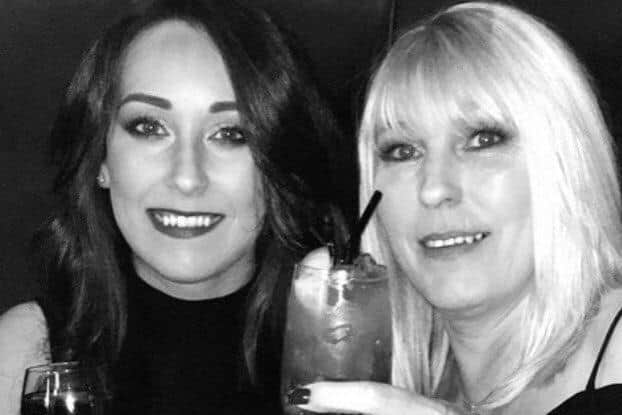Kirsty Maxwell's family call for Scotland to adopt coroners system four years on from her death
and live on Freeview channel 276
Let us know what you think and join the conversation at the bottom of this article.
Kirsty, 27, from Livingston, died after falling from a balcony in Benidorm and her family believe that if a coroner was able to investigate the tragedy - like in England and Wales - then they may have more answers today.
Speaking to BBC Scotland, Kirsty’s father, Brian Curry, said that if she had been from Liverpool instead of Livingston then they would have received more help from authorities.
Advertisement
Hide AdAdvertisement
Hide AdInstead Kirsty’s family feel as though they have been left to deal with the case by themselves.
Brian said: "When Kirsty died, if we'd had the coroners system, we could have had more of an investigation.
"We've been told that an inquest would have been mandatory. But in Scotland we don't have anything."


Kirsty was in Benidorm for a hen weekend when she died on April 29 2017.
Advertisement
Hide AdAdvertisement
Hide AdIn the early hours of the morning, Kirsty left her apartment at around 07:50 and travelled one floor up where she mistakenly knocked on the wrong apartment door.
The apartment was being used by a group of men from Nottingham and in the space of minutes she had fallen to her death from their 10th floor balcony.
The police in Benidorm initially treated the case as suspected homicide but after an investigation the Spanish authorities ruled there was not enough evidence to show a crime had taken place.
The men from Nottingham said Kirsty's death had been a tragic accident and denied any involvement.
Advertisement
Hide AdAdvertisement
Hide AdKirsty's friends and family have said the Spanish investigation was shambolic and claim crucial evidence was destroyed and important lines of inquiry ignored.
They said that when she died they received sympathetic but limited consular assistance from the Foreign Office in Benidorm and that Police Scotland could not help them when they returned home.
Brian added: "The families have got to go and fight the case, have got to raise money, have got to go abroad, have got to find a lawyer, have got to go to the courts, so it's left up to the families to do everything on their own.
"If we had the coroners system, we could have had the girls who were with Kirsty interviewed, the men interviewed, we could have had a dedicated senior investigating officer, we could have had a "go-to" person."
Advertisement
Hide AdAdvertisement
Hide AdA retired English coroner, David Coutts-Wood, who lives in Fife, is advising the family's legal team.
He told the BBC: "If it's a violent or unnatural death, the coroner must investigate and part of that investigation is an inquest.
"I did many, many inquests. It gave families some sort of ability to move on."
Six weeks after Kirsty died, a new law came into force in Scotland, allowing Fatal Accident Inquiries (FAI) to be held into the deaths of Scots abroad.
Advertisement
Hide AdAdvertisement
Hide AdIt wasn't retrospective and such FAIs would only take place at the discretion of the Lord Advocate, the head of Scotland's prosecution service.
In four years the new powers have not been used once.
Brian said: "We need to find out what happened to Kirsty. We need answers. We just need people to be open and tell us what happened."